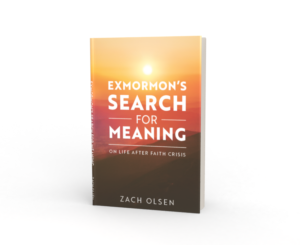How much of your life is a result of unconscious beliefs and values?
We generally think that the things we feel, believe, perceive and the way we behave are some kind of natural essence of who we are. Further, we also tend to believe that all of that stuff just happens by itself and isn’t really in our control.
As a result, our emotions feel like they’re attached to our identities. Bad feelings make us think that we’re bad people. Negative identities lead to bad choices which further entrenches us in more bad feelings. This is a lot like what depression feels like – an inescapable spiral of slipping self-worth with no hope of change.
The way out is to realize that the way we react to things we feel, believe and perceive can be, to some degree, chosen. Epictetus, Greek Stoic philosopher, said,
“It is not events that disturb people, it is their judgements concerning them.”
It’s difficult to choose feelings but you don’t have to take them seriously. Learning to question feelings leads to unraveling their source which, in turn, leads to an ability to relate to feelings differently.
By default we absorb the values and beliefs of our parents, culture, or society and tend to accept them unquestioningly (a tip on discovering your absorbed values: What gets questioned the least? The moment something is most widely accepted is the moment it should be questioned the most). Overcoming these tendencies and deliberately choosing the beliefs that are the most helpful to us is one of the biggest challenges of life. David Foster Wallace explains in his 2005 commencement speech that “the most obvious, important realities are often the ones that are hardest to see and talk about.”
He goes on saying,
“Learning how to think really means learning how to exercise some control over how and what you think. It means being conscious and aware enough to choose what you pay attention to and to choose how you construct meaning from experience. Because if you cannot exercise this kind of choice in adult life, you will be totally hosed. Think of the old cliché about the mind being an excellent servant but a terrible master.”
The challenge is to make the unhelpful, inherited values and beliefs that we habitually lean on conscious, and, after analyzing them, make the consciously chosen, helpful values habitual:
- Watch your mind without necessarily believing everything you think
- Discover your unconscious beliefs, examine them and their triggers
- Decide if they helpful or not helpful
- Create a plan so that when the trigger occurs you’ve got an alternative helpful explanation ready
- After enough practice, in any situation we’re in, we naturally feel the helpful emotion instead of the unhelpful one and do the right thing.
“Meaning is not something you stumble across, like the answer to a riddle or the prize in a treasure hunt. Meaning is something you build into your life. You build it out of your own past, out of your affections and loyalties, out of the experience of humankind as it is passed on to you, out of your own talent and understanding, out of the things you believe in, out of the things and people you love, out of the values for which you are willing to sacrifice something. The ingredients are there. You are the only one who can put them together into that unique pattern that will be your life. Let it be a life that has dignity and meaning for you. If it does, then the particular balance of success or failure is of less account.”
– John Gardner, Personal Renewal






